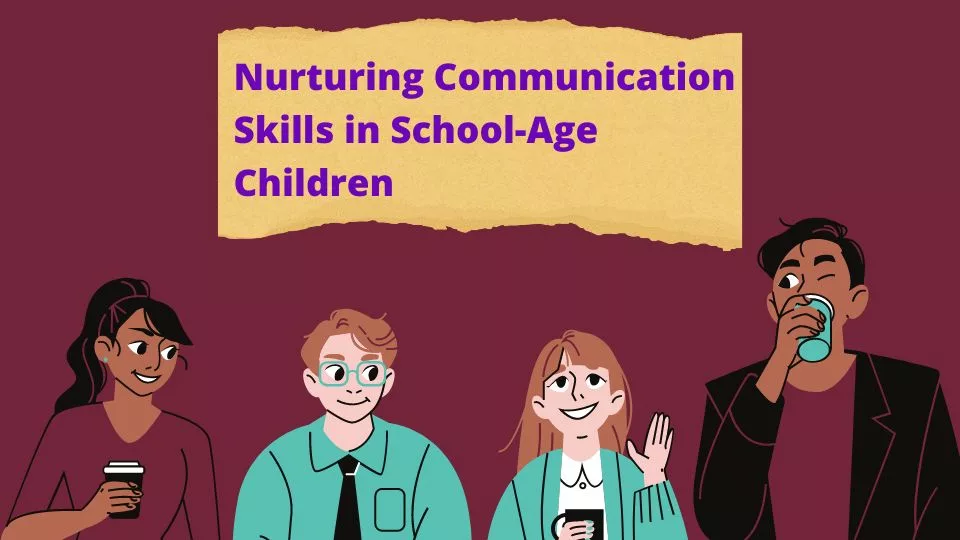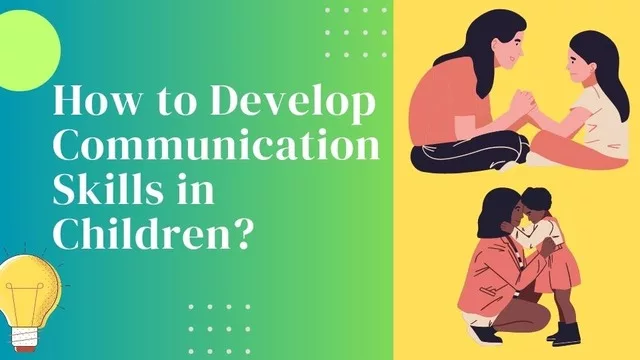Communication skills are vital for a child’s overall development and future success. This article provides practical guidance and effective strategies for parents to foster strong communication skills in their children. From creating a supportive environment to employing interactive techniques, this comprehensive guide offers valuable insights on how to develop Communication Skills in Children.
Effective communication is a cornerstone of human interaction and plays a crucial role in our personal and professional lives. As parents, one of our primary responsibilities is to help our children develop robust communication skills from an early age. By equipping them with the ability to express themselves clearly, listen actively, and engage in meaningful conversations, we empower them to navigate the world with confidence and build healthy relationships.
In this article, we will explore various methods and techniques to nurture and enhance your child’s communication skills. From infancy to adolescence, each child developmental stage presents unique opportunities for growth. Let’s delve into the strategies that can enable your child to become an effective communicator.
Understanding the Importance of Communication Skills

Clear and effective communication is essential for children as it positively impacts their:
- Social interactions and relationships
- Emotional intelligence and self-expression
- Cognitive development and problem-solving abilities
- Academic performance and learning outcomes
- Future career prospects and employability
By developing strong communication skills, children can express their needs, understand others, build empathy, and negotiate their way through various situations. Effective communication also promotes confidence, assertiveness, and critical thinking, enabling children to navigate challenges and achieve success in their personal and professional lives.
Creating a Supportive Communication Environment

To foster effective communication skills in children, it is crucial to establish a supportive environment that encourages open dialogue and active listening. Consider the following strategies:
Lead by example
Be a role model for effective communication by using clear and respectful language, active listening, and open-mindedness. Demonstrate positive communication habits within the family.
Create daily conversation opportunities
Encourage regular conversations with your child, discussing their day, interests, and feelings. Make time for one-on-one interactions to build trust and promote self-expression.
Active listening
Give your child your full attention when they speak. Maintain eye contact, ask questions, and provide feedback to show that their thoughts and opinions are valued.
Provide a safe space for expression
Ensure your child feels comfortable expressing their emotions, ideas, and concerns without fear of judgment. Encourage them to share their thoughts openly and honestly.
Developing Communication Skills in Infants and Toddlers

Babies and toddlers are constantly absorbing information from their environment and developing their communication abilities. Here are some effective techniques to support their communication development:
Verbal and non-verbal communication
Engage in face-to-face interactions with your baby, using a gentle tone, facial expressions, and gestures. Respond to their coos, babbling, and attempts at communication. Teach them and make them practice different modes of communication.
Baby Sign language
Introduce simple sign language gestures alongside spoken words to help babies communicate before they can speak. This can reduce frustration and enhance their understanding.
Reading aloud
Regularly read books to your child, emphasizing rhythm, intonation, and expression. Point to pictures, ask questions, and encourage them to make sounds and imitate words.
Play-based learning
Incorporate interactive games, songs, and rhymes that involve turn-taking, imitation, and basic vocabulary. Provide toys and objects that promote exploration and language development.
Nurturing Communication Skills in School-Age Children

As children grow older and enter school, they require additional support to refine their communication skills. Here are some effective strategies for nurturing communication in school-age children:
Encourage active participation
Engage your child in discussions, debates, and storytelling activities. Encourage them to express their thoughts, listen to others, and present their ideas clearly.
Expand vocabulary
Introduce new words regularly and encourage your child to use them in everyday conversations. Read books together, play word games, and explore age-appropriate educational resources.
Practice active listening
Teach your child the importance of attentive listening by modeling active listening behaviors yourself. Encourage them to ask questions and seek clarification when needed.
Promote public speaking opportunities
Encourage your child to participate in activities that involve public speaking, such as school presentations or community events. Offer guidance and practice sessions to build their confidence.
Supporting Communication Skills in Adolescents

During adolescence, teenagers undergo significant changes in their communication styles and social interactions. Here’s how you can foster effective communication skills in teenagers:
Encourage self-expression
Create a non-judgmental environment where your teenager feels comfortable expressing their thoughts, opinions, and emotions. Listen attentively and validate their experiences.
Promote healthy conflict resolution
Teach your teenager conflict resolution strategies, such as active listening, compromising, and finding win-win solutions. Encourage them to express themselves assertively but respectfully and that too with avoiding communication barriers.
Foster digital communication skills
Help your teenager navigate the complexities of online communication. Discuss responsible internet use, appropriate language, and the potential consequences of online actions.
Cultivate empathy and understanding
Encourage your teenager to consider different perspectives and respect diverse opinions. Engage them in discussions about current events, societal issues, and global topics.
FAQs
Q1: Can communication skills be developed in children with speech delays?
A1: Yes, children with speech delays can still develop communication skills. Early intervention programs, speech therapy, and using alternative communication methods, such as sign language or visual aids, can be beneficial.
Q2: How can I encourage my shy child to improve their communication skills?
A2: Provide opportunities for your shy child to practice communication in a safe and supportive environment. Start with small group interactions, encourage participation in activities of interest, and celebrate their efforts.
Q3: What role does active listening play in developing communication skills?
A3: Active listening is a vital component of effective communication. By teaching children to listen attentively, understand others’ perspectives, and respond appropriately, they can engage in more meaningful conversations.
Conclusion
Developing strong communication skills is a lifelong asset for children. By creating a supportive environment, employing interactive techniques, and nurturing communication at each developmental stage, parents can empower their children to become effective communicators.
Remember, building these skills takes time and patience. Celebrate small victories, provide consistent guidance, and watch your child flourish as they navigate the world with confidence and clarity.

